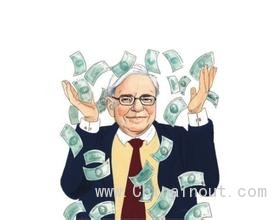
我们中的大多数人有点现金可以做投资时,可能会买个共有基金或者股票——前提是我们不把钱花在最新的科技小物件上。但真正有钱人不会这样。他们会把钱投在房产、艺术领域和生意场,还会做些其他投资,都是些我们梦寐以求的。这一小众群体处理现金的方式和我们有别,也让他们始终有盈余。
以约书亚·科尔曼为例,2004年他家里以4亿美元把他们总部在芝加哥的电信公司售出时,他们并没把钱花挥霍殆尽掉,也没有购进奢侈品。相反,他们寻求建议,如何让新得的这笔财富增值。
科尔曼现年27,当时他们的探索让科尔曼灵机一动心生一计。2011年,他发起了“动量先行计划”,这是家公司,旨在牵线搭桥税收、法律还有财富方面专家。如果哪天开始盈利,他将获利不菲,正如他的家族的第一个公司那样。你要是觉得靠创业来投资不靠谱,那你估计也不会是超级富有的那类。
拥有三千万资产的人士,即高资产值人士,投资股票和债券,但他们也购入公司,投资冷门证券,如航空租赁基金让钱生钱利滚利。他们也拥有艺术品和轿车,期望来日增值。
“这被称之为阿尔法风险,”科尔曼说道,“这种风险会有很多转机”。至于不利的那面,这种投资比传统投资风险大得多,所以丧失机会的概率也更高。同样,这种投资流动性小,不及股票,可能需要几个月甚至几年才能把资金从投资中收回。
即使你没有好几百万来投资,但至少你多多少少可以学到富人如何获取收益,然后运用到你自己的投资组合中。 (中国进出口网)
When many of us have a little cash to invest, we might buy a mutual fund or a stock — if we don’t blow it on the latest tech gadget. Not the truly wealthy, however. They often put their money in property, art, businesses and other investments that the rest of us can only dream of owning. How this rarified group uses their cash differentiates them from the rest of us — and keeps them in the black.
Take Joshua Coleman, for example. When his family sold their Chicago-based telecom company for $400m in 2004, they didn’t run out and buy something extravagant. Instead, they began seeking advice on ways to save their newfound riches and help them grow.
Their quest sparked an idea for Coleman, now 27. In 2011, he launched Momentum Advanced Planning — a firm that connects people to tax, legal and wealth experts. If the business one day sells, he could see a big return, just like his family’s first business.If you think that starting a business is an odd way to invest your money, then you probably aren’t among the ultra-wealthy.
People who have at least $30m in assets — dubbed ultra high net-worth — invest in stocks and bonds, but they also grow their money by buying companies and investing in unusual securities, such as airline leasing funds. They also own art and cars that they hope will appreciate in value.
“It’s called alpha risk,” said Coleman. “It’s this kind of stuff wher there can be a lot of upside.”As for the downside, many of these investments are riskier than traditional investments, so there’s a higher chance of losing a large chunk of change. As well, they’re far less liquid than stocks and it could take months or years for the wealthy to get their money out of an investment.
Even if you don’t have millions to invest, though, you can learn a thing or two about how the rich reap returns and apply it your own portfolios.








